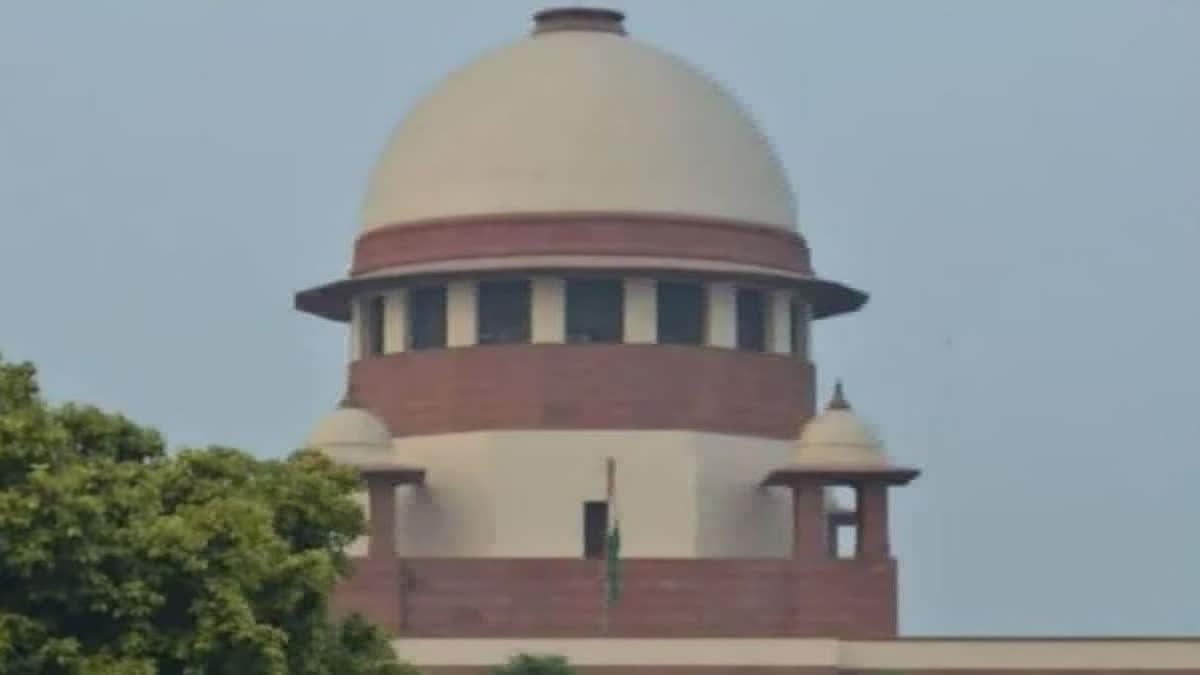New Delhi:The Supreme Court has said that it is the legal duty of a judge to take an active role in the proceedings to find the truth to administer justice and to prevent the truth from becoming a casualty while setting aside the Patna High Court verdict sentencing a man to death for raping and strangling to death an 11-year-old girl in 2015.
The apex court noted that truth is the cherished principle and is the guiding star of the Indian criminal justice system and for justice to be done, truth must prevail, and truth is the soul of justice.
A bench comprising justices B R Gavai, J B Pardiwala, and Prashant Kumar Mishra said that a free and fair trial is sine-qua-non of Article 21 of the Constitution of India and if the criminal trial is not free and fair, then the confidence of the public in the judicial fairness of a judge and the justice delivery system would be shaken.
Justice Pardiwala, who authored the judgment on behalf of the bench, said, “This court has condemned the passive role played by the judges and emphasized the importance and legal duty of a judge to take an active role in the proceedings in order to find the truth to administer justice and to prevent the truth from becoming a casualty”.
The bench stressed that the denial of a fair trial is as much injustice to the accused as to the victim and society. “No trial can be treated as a fair trial unless there is an impartial judge conducting the trial, an honest, able and fair defence counsel and equally honest, able and fair public prosecutor”, it said.
The bench said the role of a judge in the dispensation of justice after ascertaining the true facts no doubt is a very difficult one and in the pious process of unravelling the truth so as to achieve the ultimate goal of dispensing justice between the parties the judge cannot keep himself unconcerned and oblivious to the various happenings taking place during the progress of the trial of any case.
The top court set aside the high court judgment, which confirmed the death sentence handed down by the trial court, and remitted “ the matter back to the High Court for deciding the reference under Section 366 of the CrPC in the manner it ought to have been decided, more particularly keeping in mind the serious lapses on the part of the defence in not proving major contradictions in the form of material omissions surfacing from the oral evidence of the prosecution witnesses”.
Also read:Is there no solution to Kashmir within the Constitution, is Article 370 beyond basic structure doctrine: SC to petitioners
The apex court noted that there were several discrepancies between the witnesses' accounts of events and the version of the police with regard to the role of the appellant and the co-accused Pritam Tiwari. It said neither the counsel for the accused nor the public prosecutor, the trial court judge or the high court looked into this aspect to try to reach the truth.
The top court said a judge should not shut his own eyes and be a mute spectator, acting like a robot or a recording machine to just deliver what stands fed by the parties.
“Truth is the cherished principle and is the guiding star of the Indian criminal justice system. For justice to be done truth must prevail. Truth is the soul of justice. The sole idea of the criminal justice system is to see that justice is done. Justice will be said to be done when no innocent person is punished and the guilty person is not allowed to go scot-free”, the bench cited one of the observations of the committee.
According to the prosecution, the accused had raped and strangled the girl on June 1, 2015, when she had allegedly gone to his home in a village in Bhagalpur to watch television. In 2017, a trial court convicted the accused of rape and murder and handed down the death penalty, holding the offence fell under the rarest of rare category. In 2018, the high court dismissed his appeal against conviction and confirmed the death penalty.
The top court said the petitioner Munna Pandey is in jail for more than nine years and in such circumstances, the death reference referred to above on being restored to the file of the high court shall be taken up for hearing expeditiously. “As the appellant convict is in jail for more than nine years, his family might be in dire straits. He may not be in a position to engage a lawyer of his choice. Probably, he may not be in a position to even understand what is said in this judgment. In such circumstances, the High Court may request a seasoned criminal side lawyer to appear on behalf of the appellant and assist the Court”, said the bench.
